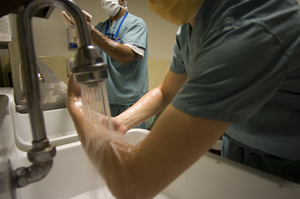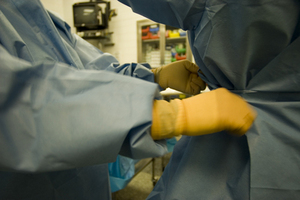



A Day in the Life

Surgical Oncology is well suited to someone with technical skills and academic interest as well a desire to work in oncology.
The range of responsibilities for a Surgical Oncologist include:
Operating usually one to two days a week and the ORs run between 8 and 10 hours.
Rounding on inpatients on the floor or in the ICU
Consulting on inpatients for surgical opinions
Clinics where we followup or see new cancer patient referrals, these are either full or half days, some clinics are multidisciplinary ie attended by Surgical, Medical and Radiation Oncologists
Teaching undergraduate students and residents - in formal settings and in the clinical context as well as postgraduate CME lectures
Research - both clinical and basic science
Administration
Tumour board and case conferences
Liaising with community surgeons for patient management
Covering your specialty’s emergency call
Daily Q and A
How many different things do you do each day?
A day in the life of a surgical oncologist would consist of multiple activities for example: rounding on patients, either working in the clinic or the OR, administrative work, multidisciplinary conferences and maybe some research.
What are your hours?
I would say an average of 10 to 12 hour days, starting at 7 or 8am and finishing between 5 and 7pm.
There is some flexibility and to some degree you can dictate your own hours. All of this of course depends on where you work and how busy you want to be.
How much call do you do?
In Kingston we average one day in seven call. The call is to cover the General Surgery service.
How do you work with other surgeons at KGH and the region?
In an academic centre most of the Surgeons have a niche or area of expertise, so we would consult with each other regarding patients with those problems or we may operate together to support the other surgeon performing the surgery we each have specialized in. With community surgeons we provide advice, act as liaisons with the Cancer Centre and take over the more complex surgical cases that they may have seen.
Education and Training:

General Surgical Oncology is a sub-speciality of general surgery and after medical school requires:
4 years of general surgery residency
2 years of specialty training
 Previous
Previous